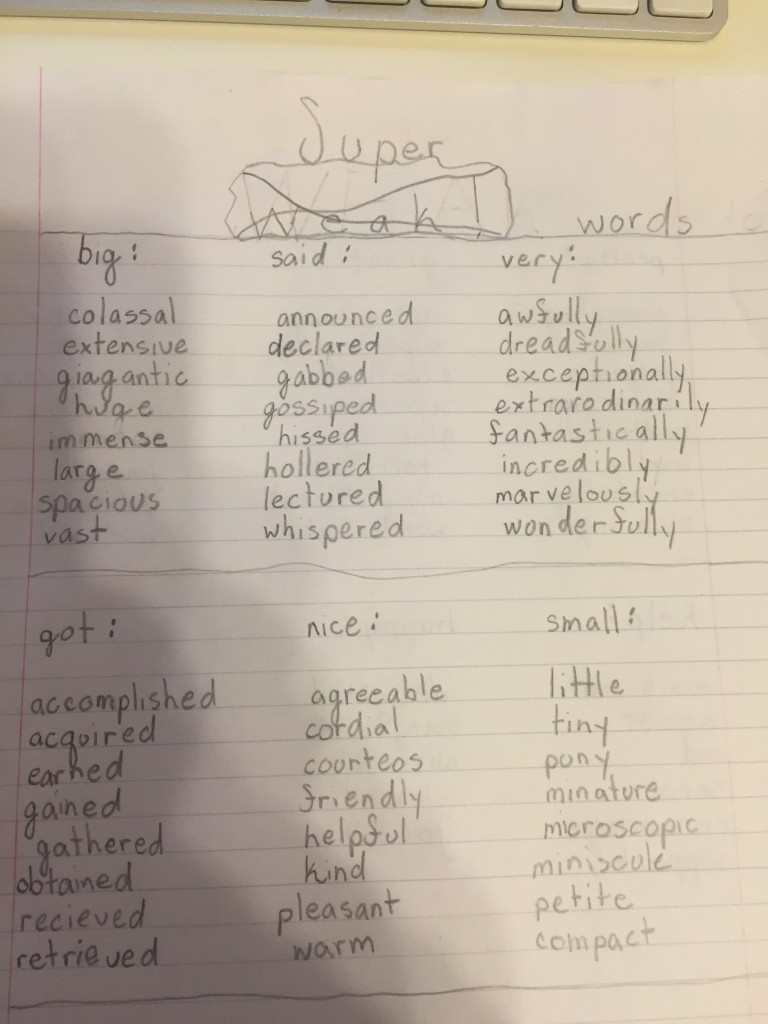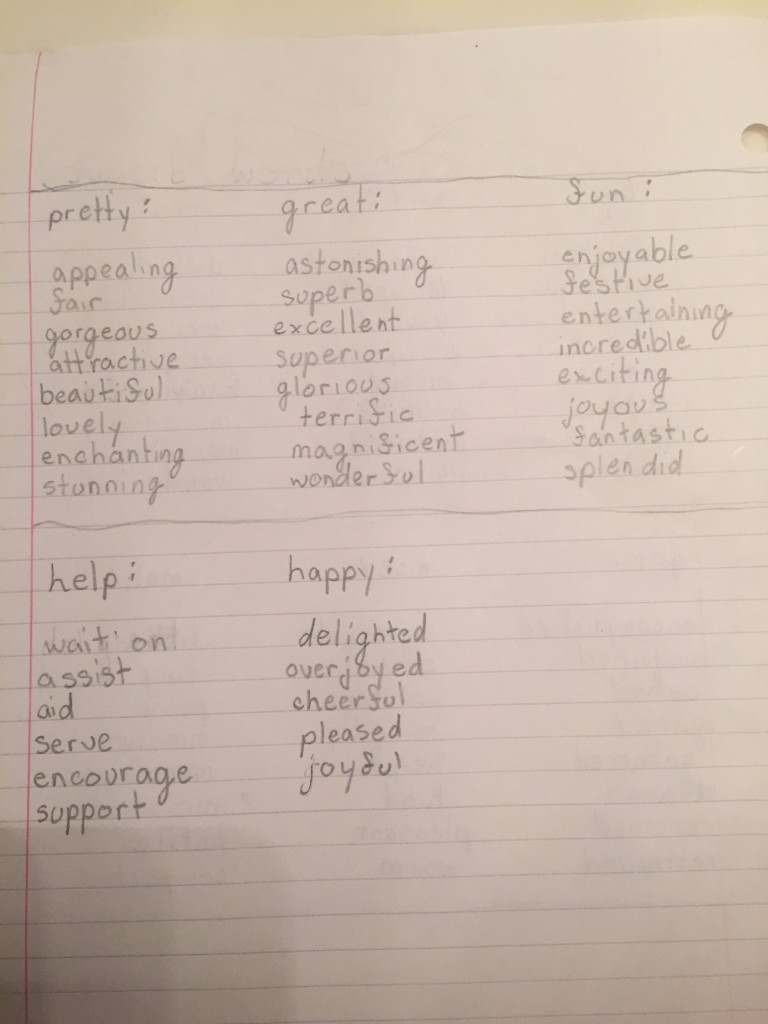Strong Words vs. Weak Words
A few weeks ago as I was writing a Tuesday Tip post, my 9-year-old daughter asked if I had discussed strong words vs. weak words. I requested she give me an example and she told me she would write some down for me. Apparently there is a poster in her classroom that has examples of stronger words to use when writing. She came home from school the next day with two pages full of word substitutions. Today’s Tuesday Tip is courtesy of my daughter and she hopes you all are able to fill your books with stronger words. (She also requested you overlook any spelling errors and messy handwriting.)
And if you need a list that’s a little bit more “professional”, here is a wide range of emotions, just in case.

How to Write Good
I’ve seen this before but thought it was worth posting. What do you think? Do any of these tips sound legit? Will any of them help you?
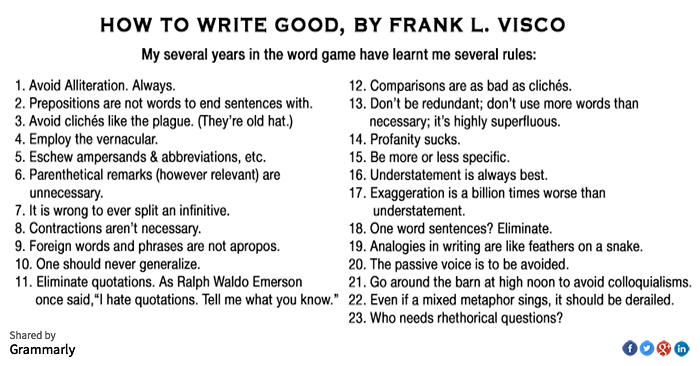
Buy, By, Bye
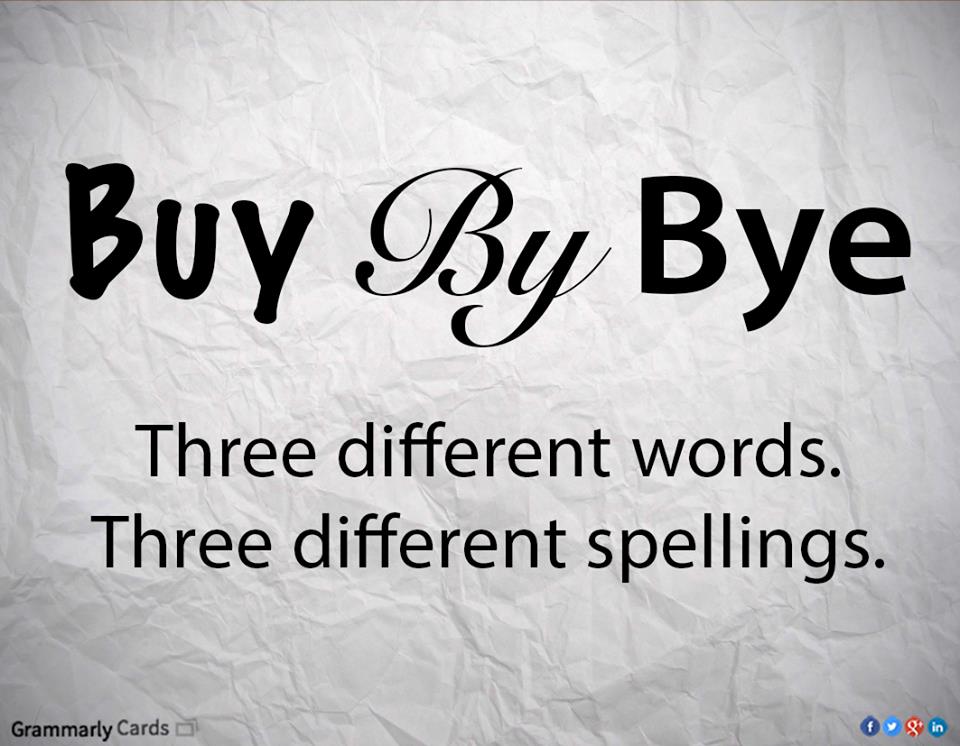
Buy is a verb that means to purchase.
By is a preposition that means near, beside or through.
Bye is a greeting of departure.
Now be honest, you’re singing that *NSYNC song, aren’t you?
Just a Little Reminder
It doesn’t matter how often we’ve been reminded of the differences in these words. They are still misused quite a bit. If you happen to be one of those people who confuse these words, hopefully this guide will help.
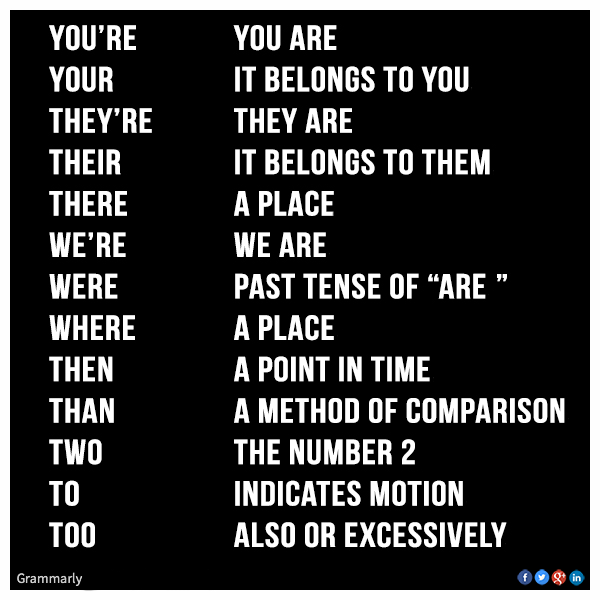
Brake vs. Break
I’ve run across this mistake more than once in the last few weeks. Here’s a reminder to avoid further confusion.
The noun brake is a device for slowing down or stopping a moving vehicle.
Break is both a noun and a verb. The verb to break means to terminate, shatter or separate into parts. The noun refers to a pause, interval or gap in time.
Principle vs. Principal
Last week I gave you a preview to the tip for today. I remember learning the difference between these two words back in grade school. Our school principal was our “pal”. Remembering that would allow us to always use the correct form of the word. I’m beginning to understand not everyone learned this tip. Here are the definitions of both words to help you.
A principle is always a noun. It is a rule, law or doctrine.
A principal can be a noun and an adjective. It means the main, primary or most important in a group.
Main vs. Mane
This week’s tip is one I ran across this week during my reading. I hope it helps clear some things up for you.
Main means the most important, chief or principal*. It can also be the largest pipe in a network of connecting pipes.
Mane usually refers to the long, thick hair around the neck of some mammals.
* Next week’s tip will be the difference between principal and principle.
Faint vs. Feint
Did you know that most of my Tuesday Tips come straight from my own experience? I keep a list of common mistakes I find when editing or proofreading and those mistakes become tips for each of you. So, without further ado…
Faint can mean to lose consciousness or to lack in strength, clarity or brightness. It is both a noun and a verb.
Feint is a noun referring to a deceptive action or attack.
Vice vs. Vise
Here is a mistake I come across frequently.
A vice is a behavior or habit that can be considered immoral or negative.
A vise is a tool used to secure an object to allow work to be performed on it. *
*Vise is the American English way of spelling this word with this particular definition. The British English spelling would be vice. What do you make of that?
Later vs. Latter
This weekend I was reminded how often later and latter are misused. So, this week’s tip is to help you know when each is appropriate.
Use later when referencing time. Later means after, or after some time.
Example: We will read about it later.
Use latter when referring to the second of two persons or things mentioned previously (or the last one or ones of several).
Example: Jane and Cindy are both authors but I’ve only read books by the latter.
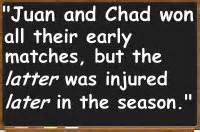
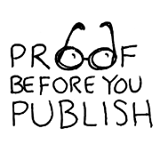
3324 E. Ray Road #41
Higley, AZ 85236
info@proofbeforeyoupublish.com

